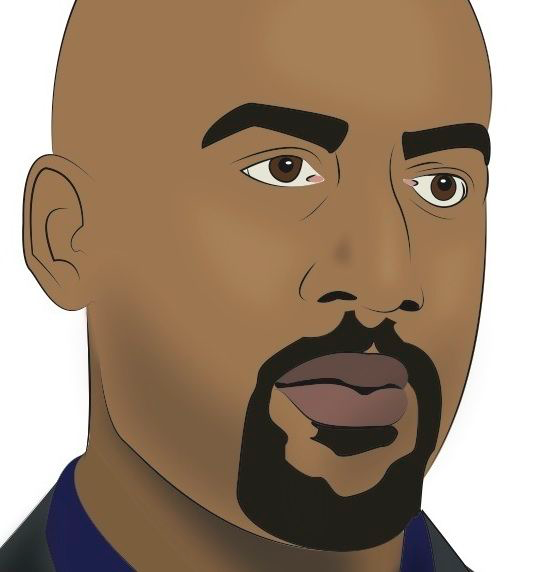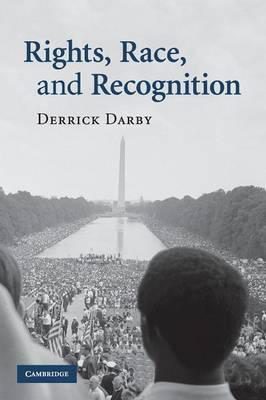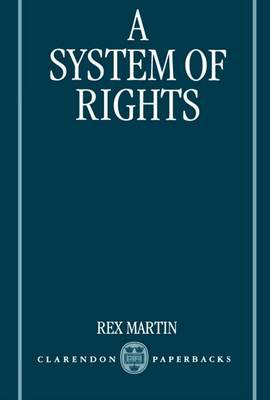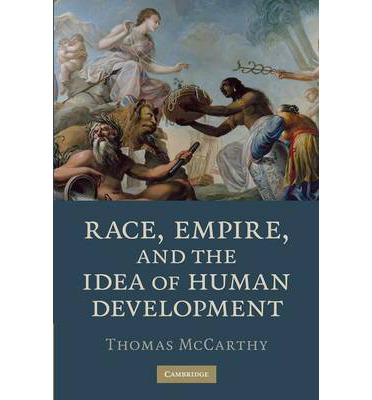Keeping It Real: The Colour of Mind
Interview by Richard Marshall.

'Social scientists tell us that some white people (especially liberal ones) do indeed feel collective guilt for past racial injustice. I have nothing to say about whether they should feel this way or are right to feel this way. Some social psychologists including one that I have co-authored two papers with (Nyla R. Branscombe) find that tapping into white guilt can have social justice-promoting positive benefits. But playing the guilt and blame game when it comes to race matters is, and has always been, tricky business in America. Martin Luther King Jr. certainly appreciated this, which explains why he worried (after the 1964 Civil Rights Act, and the 1965 Voting Rights Act, were passed) that eradicating racial inequality in America was going to be even more challenging than putting an end to formal racial discrimination.'
'It’s not that I found the natural rights theory of rights “too weak.” I thought that it could not make good enough sense of the historical record—replete with denials of blacks having rights—and, more importantly, it could not be squared with the lived experiences of blacks in America being treated as sub-persons or even sub-human. What sense, I thought, does it make to speak of subjects actually having rights if having them does not in some way manifest itself in how they can move through the social world or in how they are treated by others? '
Derrick Darbymain research has been in social and political philosophy, focusing especially on questions about the source and value of rights, informed by the legacy of race and racism in the United States. His theory can be found in Rights, Race, and Recognition(Cambridge, 2009). His current interests lie at the intersection of social justice, social inequality, and race. Hoping to do justice to inequality, he is working out a systematic position on how we should understand and pursue social justice under nonideal circumstances, as informed by empirical research in sociology and psychology on beliefs about social inequality and how they vary by race and ethnicity. Work on this project includes collaborative research articles with a social psychologist, a sociologist, and a co-authored book in progress on the racial achievement gap with a historian, tentatively entitled The Color of Mind: Why the Origins of the Achievement Gap Matter for Justice. The Spencer Foundation and the National Endowment for the Humanities have supported his current research. Here he discusses white guilt about black oppression, his pragmatic approach to framing the demands of rights, racial inequality and justice in the context of the USA, the paradox of rights when used to defend the immorality of slavery, rights externalism, and the need for a multi-discipinarian approach to the philosophy of racial inequality and social injustice.
3:AM:What made you become a philosopher?
Derrick Darby: Fate, of course, and a greatly admired, and very wise, professor who gave me the lowest grades in my philosophy major before telling me I had a future in the profession during my senior year of college.
I had a wonderful undergraduate experience at Colgate University. A freshman seminar in the French Department on existentialism got me excited about Camus, Sartre, and the timeless philosophical themes related to self, society, and struggles for recognition they tackled in ways that I found irresistible and authentic. During my sophomore year, a course in Greek philosophy with Anne Ashbaugh—a wonderful teacher who first told me that I would be a philosophy major—hooked me. She was right, but at the time I was still set on pursing my childhood dream of becoming a U.S. Supreme Court Justice. I figured that majoring in philosophy would not hurt my chances and might even help me get into law school, so what the hell, why not just do it?
By the time I reached my senior year, I had taken more than 15 courses in philosophy, completed an honors thesis on Wittgenstein and Heidegger on language and meaning, and was gearing up for applying to law school when Jerome Balmuth—a legendary Colgate philosophy professor and notoriously tough grader—changed the course of my life. He told me “philosophy needs you” and encouraged me to apply to a few top graduate programs. He said: If I you don’t get into Pittsburgh, Princeton, Harvard, or UNC Chapel Hill, then go into law as you planned. I had no idea what pursuing this path would involve, the sacrifice, endurance, and very thick skin it would take to excel in a discipline where blacks were few and presumptions of black intellectual inferiority were pervasive and could be traced back to Hume, Kant, and other mighty dead philosophers, but I took Balmuth’s advice. When I was accepted at Pittsburgh, he was thrilled, and with his blessing and the intense logic tutorial with me over the summer of 1988 (after graduation) still fresh on my mind, I packed all my worldly possessions, headed for Pennsylvania in my 1976 rusted out Chevy Vega, and never looked back. What happened when I got to Pittsburgh in 1988—where they had not conferred a PhD on an African American since Laurence Thomas got his in 1976—is a long story, with ups and downs, twists and turns, that ended with me getting a first-rate philosophical training.
It was, I admit, a deeply moving moment in my life when decades later a sitting Chief Justice of the U.S. Supreme Court would meet me and be impressed that I was a philosopher teaching about rights and social justice in a law school. Had it not been for my undergraduate experience in philosophy at Colgate, and a fortuitous intervention by my beloved professor who kicked my ass in class, who knows, I might have been John Roberts’s colleague on the court today.
3:AM:Are white people right to feel collective guilt for the sins of their fathers in relation to the moral responsibility they feel towards slavery and contemporary black/white inequality or do you think this is too backwards looking and looking forward requires something more effective than collective guilt and finger-pointing?
DD:Social scientists tell us that some white people (especially liberal ones) do indeed feel collective guilt for past racial injustice. I have nothing to say about whether they should feel this way or are right to feel this way. Some social psychologists including one that I have co-authored two papers with (Nyla R. Branscombe) find that tapping into white guilt can have social justice-promoting positive benefits. But playing the guilt and blame game when it comes to race matters is, and has always been, tricky business in America. Martin Luther King Jr. certainly appreciated this, which explains why he worried (after the 1964 Civil Rights Act, and the 1965 Voting Rights Act, were passed) that eradicating racial inequality in America was going to be even more challenging than putting an end to formal racial discrimination.

More recently, in her engaging book Responsibility for Justice, political theorist Iris Marion Young explores the virtues of eschewing a backward looking approach to grounding collective responsibility for structural injustice in favor of a forward looking one. I have defended a similar strategy for dealing with racial inequality. Many whites—not just overtly racist ones but also liberal ones in deep blue states—react defensively to accusations that they are to blame, either directly or indirectly, for the past sins of their fathers and the continuing legacy of racial injustice linked to them. This is why I think that many reparations arguments, especially ones that take certain empirical assumptions for granted, are simply non-starters. Social psychologists have studied the range of defenses, which include denial, distancing, and blaming the victims among other tactics. I believe that the best story of what we owe one another, and why we owe it, when it comes to addressing racial inequality must take account of the psychology of injustice, specifically how people are apt to respond when confronted with instances of injustice in the real world. My current work in political philosophy is filling in bits and pieces of this very complicated story. Apart from John Rawls’s understudied views on the relationship between justice and human psychology, Martha Nussbaum and Iris Young have done the most insightful work on this connection.
Thanks to work in political philosophy on race, most recently by Charles Mills and my wonderful colleague Elizabeth Anderson, nonideal theory and its imperative to take the racial realities of our past and present seriously has become an influential orientation for theorizing in political philosophy. My contribution to this growing literature begins with taking the reality of such defensive responses to racial injustice and racial inequality seriously in developing a more realistic—dare I say more pragmatic—approach to framing the demands of justice in our less than perfect racially polarized society. In addition to the work I have done with Branscombe, which explores the implications of social psychological research for egalitarian racial justice projects, in collaboration with American law scholar, Richard Levy, I have defended the pursuit of remedies for racial injustice that are impervious to the shortcomings of collective guilt and finger-pointing approaches associated with the liberal left and the conservative right. The current form of this project, “Postracial Remedies,” is available on SSRN and is forthcoming in The University of Michigan Journal of Law Reform. Its full articulation will come in a co-authored monograph currently in the works.
3:AM:You’ve examined the source of rights and it’s probably useful to grasp the position that you’re rejecting first. So can you sketch the position of unrecognized or natural rights that you think is too weak a theory and say why it won’t pass muster. This might strike some as a surprise as it was this theory that was used to establish the immorality of slavery wasn’t it – to argue that we don’t have natural rights seems a risky position. Isn’t the push back against this idea the position that says if a society or group doesn’t recognize someone having rights then they really don’t have any? A slave-holder to a slave, a nazi to a Jew – they could just truthfully say that slaves and jews don’t have rights. That seems morally pernicious doesn’t it? Doesn’t your approach prevent us from using moral rights for critical purposes?
DD:All of my philosophical work to date, my current work on racial inequality and racial justice as well as my previous work on rights, has been rooted in a deep appreciation for the distinctive experiences of blacks in America. At Colgate, I also had the great fortune to minor in African American Studies, working under the supervision of the late historian Manning Marable—author of the Pulitzer Prize winning book Malcolm X: A Life of Reinvention. From him, and Josiah Young, an African American theologian in the philosophy and religion department who first introduced me to James Cone’s black liberation theology, I developed a strong interest in reading philosophy to make sense of the experiences of folks within the African diaspora (here existentialism was especially illuminating), and to use these experiences to test the soundness of ideas and theories I devoured as a student of philosophy. I wanted to utilize the tools of philosophy to better understand and articulate these philosophical inputs from the vantage point of the black experience in America and the larger African diaspora. But, most importantly, I wanted to use my understanding of this experience to critically evaluate what philosophy was teaching me. My dissertation and early career preoccupation with how to understand the source and value of rights sprang from these abiding interests.
I was struck by the paradox of rights being used, as you say, to defend the immorality of slavery, on the one hand, while on the other blacks were widely regarded as beings without rights, as Chief Justice Taney infamously asserts in the Dred Scott decision. The most obvious way to dispel this paradox was to distinguish between a class of so-called “natural rights,” ones that persons possess independently of any sort of social recognition, either in virtue of their ontological natures or by virtue of being endowed with them by their Creator, and a class of non-natural rights, of which legal rights are an instance. Rights in the latter category were, in some sense, the product of social practices of recognition.
It’s not that I found the natural rights theory of rights “too weak.” I thought that it could not make good enough sense of the historical record—replete with denials of blacks having rights—and, more importantly, it could not be squared with the lived experiences of blacks in America being treated as sub-persons or even sub-human. What sense, I thought, does it make to speak of subjects actually having rights if having them does not in some way manifest itself in how they can move through the social world or in how they are treated by others? To say that a subject possesses rights, where there is no concrete uptake in the realm of social practice, struck me as utterly mysterious and unhelpful, and it still does. Being a rightholder seemed to be a status that had to be fought for, could be won or loss, and for which constant vigilance was required to retain this status. (Lately, I have been working on dignity for a project on MLK and voting rights, and in reading Jeremy Waldron’s work I am struck by the parallels between his account of dignity as social status and my account of rights possession as a social status.) And to critics who objected “but you can’t make sense of the immorality of slavery or racial injustice without positing natural rights.” I said: “Really, so you mean to tell me that natural rights exhaust the realm of available normative conceptions? This is obviously false, what about appeals to God, to utility, to virtue, and the like? Any of these can provide a basis for normative criticism, though, to be sure, they too will have their own problems to deal with. I think Jeremy Bentham has much to teach us here, in his critique of natural rights, though I am not a utilitarian.
Although my view prevents us from appealing to natural rights as a basis for moral criticism, it does not stop us from engaging in moral criticism, as there are many other resources available for this in the normative realm. Moreover, as I argue in the last chapter of Rights, Race, and Recognition, drawing on philosophical insights from Thomas Hill Green’s neglected political philosophy, rights externalism does not prevent us from appealing to other socially recognized but non-legal rights for criticizing existing social practices. To say that blacks, Jews, or indigenous people have no rights under certain idealized conditions is not to say that ways of treating them in such circumstances is morally justified. So there is nothing morally pernicious about my view unless your moral arsenal is seriously impoverished—a point that I have unsuccessfully tried to impress upon Charles Mills and David Lyons (two of my toughest critics) over the years.
3:AM:Your alternative is a form of rights externalism which finds the source of rights in a certain kind of social recognition. So these are unnatural rights right? Can you sketch the outlines for us.
DD:Rights externalism begins with the insight that being a rightholder is akin to having a certain kind of status in which some form of social recognition by others is a necessary condition of having it. And this is so, whether we are talking about being a moral rightholder or a mere legal rightholder. In developing the details of my theory of rights, I am indebted to Rex Martin’s important book, A System of Rights. This was the most important book in my library when I wrote my dissertation at Pittsburgh under the direction of Joseph Camp (with lots of help from John McDowell). Developing and qualifying some of Martin’s insights, I defined the recognition constraint in terms of having a way of acting or being treated socially prescribed, maintained, and enforced. The proper object of my theory is giving an account of the conditions for being a bearer or subject of rights. And, for me, these conditions are essential ingredients for this, and my way of capturing the concrete uptake needed for this status to be part of one’s lived experienced, at least in the case of persons. One noteworthy implication of my view is that persons are not the only subjects that can be bearers of rights; any subject for whom we can lay down, maintain, and enforce a way of acting or being treated can be a rightholder on my view. This includes my French Mastiff Mars, other animals, trees, monuments, or even works of art!

Going back to my concern to test philosophical theories against the historical experiences of blacks in America, I gravitated to rights externalism because when theorizing about rights possession it does not allow us to make a mystery out of circumstances in which African Americans clearly could not move through the social world in the same ways as whites. Philosophers must pick and choose when they wish to leave things mysterious and when they do not. When it comes to thinking about what being a bearer of rights amounts to, I opted to follow Jeremy Bentham, T. H. Green, Rex Martin, Raymond Geuss, Anita Allen, and others in wanting to take the mystery out of this particular phenomenon.
3:AM:How do your interests outside of philosophy link up with your philosophical thinking?
DD:My current work on racial inequality and social justice—and to a lesser extent my earlier work—takes me into areas of knowledge outside of what we teach and learn in philosophy classrooms. In the last six years or so I have co-authored multiple works and grant proposals with an economist, sociologist, social psychologist, lawyer, and a historian. I have written with them about economic and racial inequality, inequality of opportunity and school choice, school finance reform, equal protection jurisprudence, and the racial achievement gap in K-12. For me these fruitful research collaborations have been vital to pursuing the main question that now guides my research and writing: How should we frame the racial justice demand to mitigate racial inequality in a world deeply polarized about race matters?
Not long ago I had the good fortune of giving a TEDx talk. I still can’t believe how challenging that was and how much preparation it took—literally months to present a 16 minute talk! My talk was about how ordinary people (like me) can live extraordinary lives by doing the knowledge, or by being like Socrates. Trust me. I’m pretty ordinary; I have no real talents. I told the story of my first exposure to philosophy growing up on the streets of New York City’s famed Queensbridge Housing Projects in Long Island City, the place where stars are born, as MC Shan once rapped. “Keepin’ it real” was an abiding imperative of living in the Bridge—whether doing hip hop, sports, or doing the knowledge you were expected to always keep it real. This sensibility is part of my philosophical DNA. I do philosophy in ways that, I believe, keeps it real! I don’t worry too much about what people think about my views, which tend to be contrary to the received philosophical wisdom. This is true of my work on rights. And it is true of my current work on racial inequality. I may not get many readers or amass a serious following. But that’s cool—I’m happy to remain an underground philosopher with mainstream credentials. I just make sure that my considered views are thoroughly thought through and very well-defended.
In trying to carve out a racially realistic response to the question that now engages my philosophical curiosity—a response that is highly sensitive to the ways in which race divides us—I am trying to establish an alternative to the race consciousness championed by the American left and the colorblindness defended by the American right. Doing justice to this question has required venturing outside the disciplinary boundaries of philosophy, seeking knowledge from elsewhere and in collaboration with other scholars laboring on the race problem. Philosophers of science, philosophers of language, and philosophers of mind have long shown us that solving certain philosophical problems requires us to venture into the domains of natural science, linguistics, and cognitive science. It should therefore come as no surprise that addressing problems pertaining to race, racism, and racial inequality require attending to work in social science, history, and law. The works that I find most insightful in political philosophy these days, like the ones I list below, bring philosophy into conversation with these disciplines in skillful, subtle, and suggestive ways.
3:AM:And finally for the readers here at 3:AM, what should we be reading to get further into your philosophical world?
DD:Ironically, to get further into my philosophical world these days, you would need to read work on race, racism, and racial inequality outside of philosophy in history, the social sciences, law and public policy. But to get a good sense for why political philosophy must venture into these domains to offer valuable insight on race matters, I recommend starting with the following books:
Charles Mills, Blackness Visible: Essays on Philosophy and Race(1998)

Thomas McCarthy, Race, Empire, and the Idea of Human Development(2009)
Elizabeth Anderson, The Imperative of Integration(2010)
Tommie Shelby, Dark Ghettos: Injustice, Dissent, and Reform(forthcoming)
Derrick Darby and John L. Rury, The Color of Mind: Why the Origins of the Achievement Gap Matter for Justice(forthcoming)
ABOUT THE INTERVIEWER
Richard Marshallis still biding his time.
Buy his book hereto keep him biding!